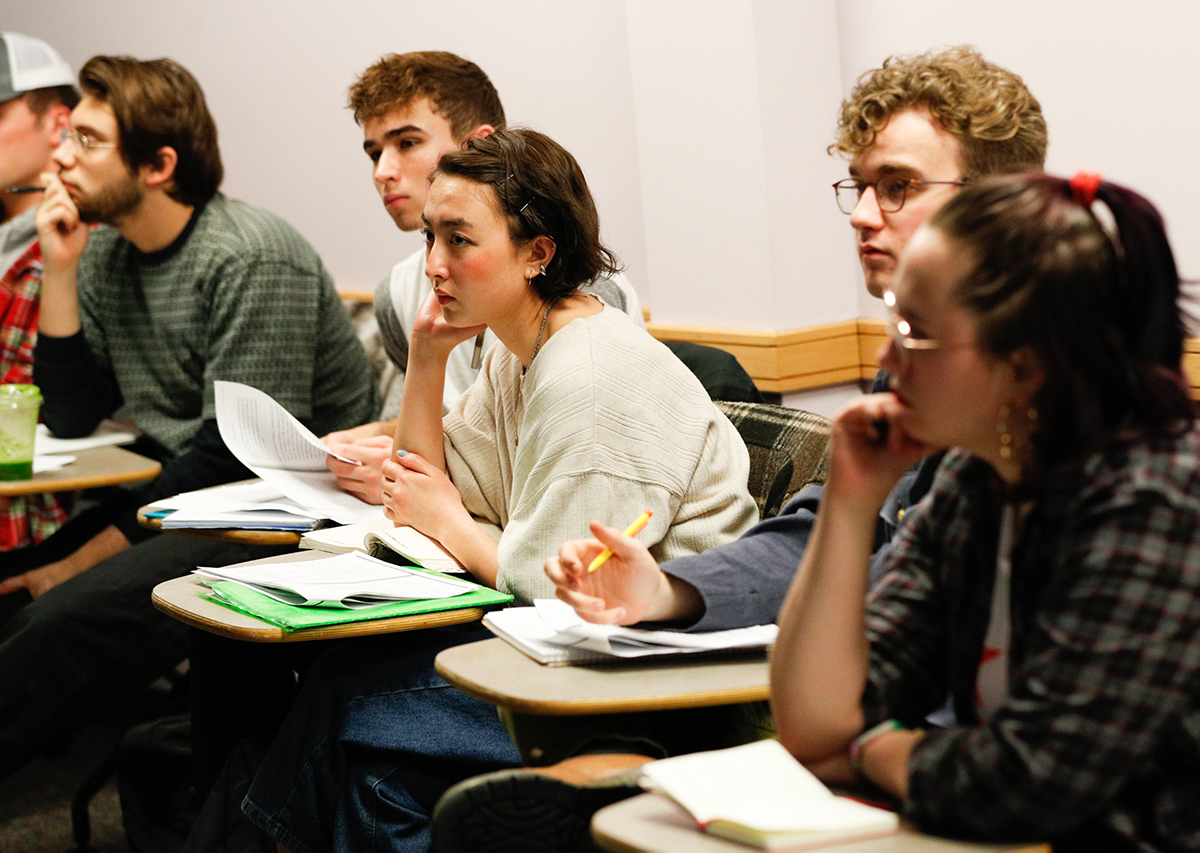What is the Senior Experience Coda?

The Senior Experience Coda (SEC) is a general education requirement that encourages Skidmore students to integrate many aspects of a broad liberal arts education and have the opportunity to imagine themselves—productively, creatively, passionately, and responsibly—as citizens in the world they are facing beyond graduation. The term coda comes from dance, music, and theater, where it describes the final section of a piece that serves to summarize the preceding passages but also introduces a final, novel idea. Coda captures the intended spirit of the Senior Experience, which should strive to enable students to integrate their previous experiences at Skidmore while at the same time fostering the production of new and creative ideas. The Coda is a moment for a student to simultaneously reflect on his/her/their academic past and look to the future.
Students in their senior year will complete one of many possible Codas. There is no specific course or capstone experience that students are required to take, but they must find or design an opportunity to take ownership of their own educational experience and pursue additional steps to integrate their many experiences at Skidmore. As with all courses and capstone experiences, faculty are free to design Codas as they see fit. The student’s experience with the Coda should be informed by the following themes:
- Relevance—Students will connect to the broader world, which may mean the broader world of academic discourse and/or the world outside of Skidmore College.
- Integration—Students in the Coda will consciously and reflectively examine their broad and unique liberal arts education.
- Creativity—Students in the Coda will produce original work and engage with individual ideas—in analysis, invention, or creation—in all fields.
It is expected that by their senior year, students have a firm idea of their academic interests and some idea of their post-college plans. In a Coda, students may work collaboratively with faculty and peers to identify an appropriate integrative course, research project, performance, and/or practicum. Students may choose to fulfill their Coda within their major, but they are free to find interdisciplinary experiences and codas offered by other departments. There are many ways to define such courses, including, but not limited to:
- Senior thesis projects or capstone courses/capstone experiences that require significant research and writing;
- Existing maturity-level courses that require substantial engagement with original research, in-depth analysis, service learning, and/or civic engagement with a focus on integrative learning;
- Practicum experiences within a major (e.g., an Education Studies major may satisfy this requirement with the teaching semester);
- A one-credit add-on to an existing 3 or 4 credit course that requires the student to focus on integrative learning, work in collaborative setting with peers and faculty, and present a final product that satisfies the three Coda themes; and
- A Coda course that is specifically designed by a faculty member to invite students who do not choose to take on individual research or practicum experiences to engage with the three themes of the Coda.
As part of the Coda, students will have the opportunity to reflect on how their project and liberal arts education connect to society. Working collaboratively with faculty and peers, identifying one’s own particular areas of expertise, and finding moments to reflect on the integrative learning experience are essential elements of the senior experience. The Coda is the conclusion of the sequence of integrative experiences, and thus, seniors are expected to be able to engage intentionally and thoughtfully with the process of reflecting on their time at Skidmore.